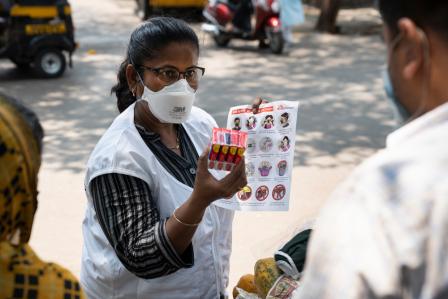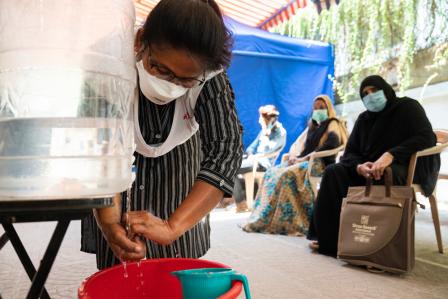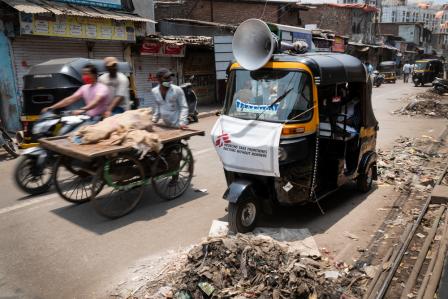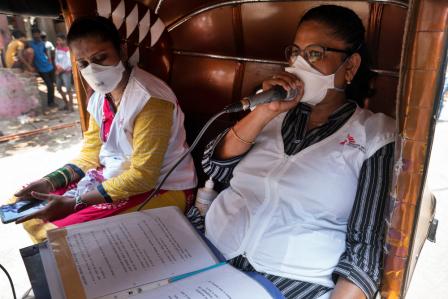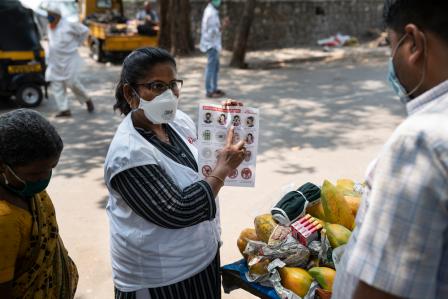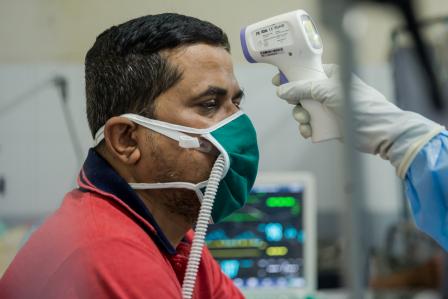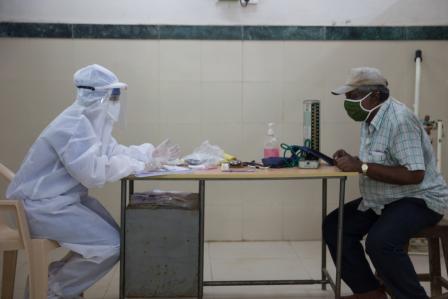India’s COVID-19 crisis shows urgency for countries to back the waiver for vaccine patents
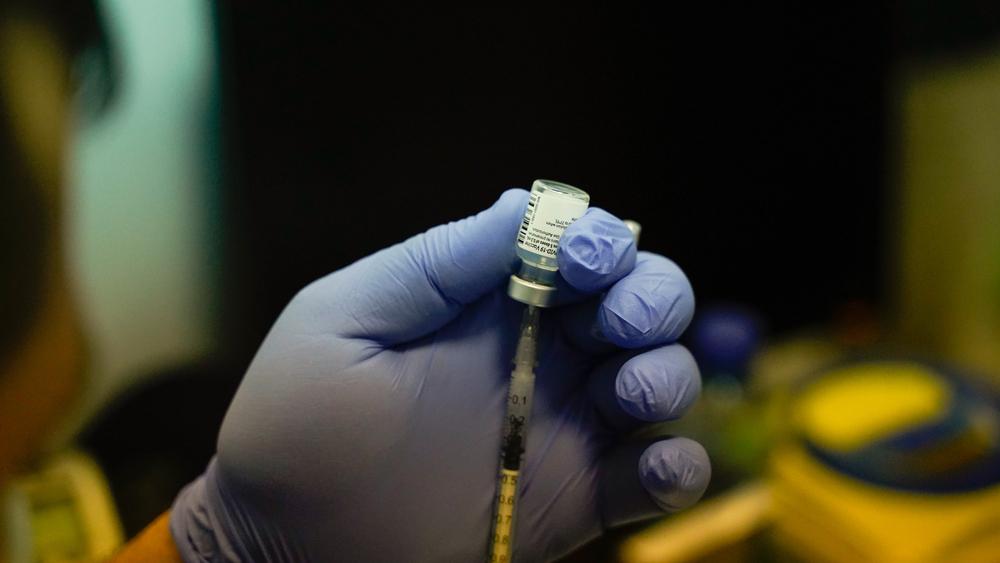
A photo of COVID-19 Vaccine. © Mohamad Cheblak/MSF
Doctors Without Borders / Médecins Sans Frontières (MSF) has scaled up medical intervention in Mumbai, while undertaking precautionary measures to ensure continuity of quality medical care for vulnerable populations. Doctors Without Borders is also calling on governments, including Greater China and Southeast Asia leaders, to support the landmark proposal to waive certain intellectual property (IP) during the COVID-19 pandemic to allow COVID-19 tools, including vaccines, to be more affordable and accessible to all.
Mumbai, a densely populated city with almost 42% of the population living in low-income housing and in poor hygienic conditions, has been severely devastated by the pandemic. Doctors Without Borders has deployed doctors and nurses to support BKC hospital (also called Jumbo Hospital) in Mumbai, which currently has two wings for treating severe COVID-19 patients. Each of these wings can admit 1000 patients.
During the virtual press briefing today, Leena Menghaney, COVID-19 Survivor and Global IP Advisory, MSF Access Campaign, spoke from India, “The situation in the areas where we intervene remains extremely challenging. There is a need to increase access to timely oxygen and quality management of patients under a highly challenged health system.”
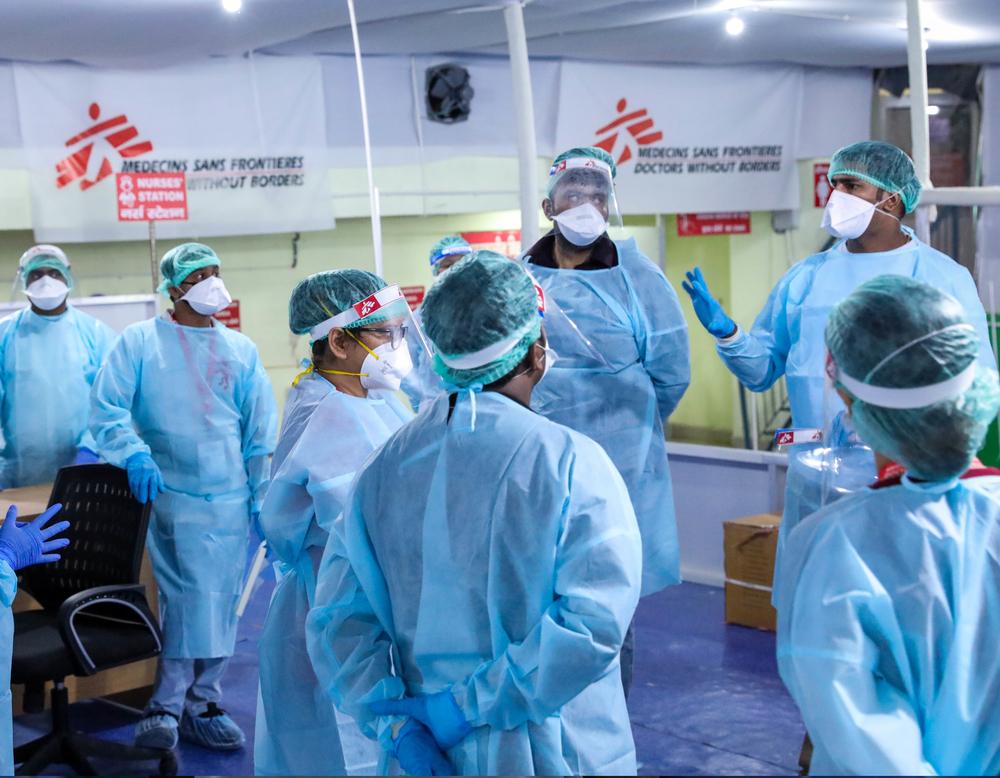
Representatives from different teams carefully check the PPEs and protocols. © Aahana Dhar/MSF
Doctors Without Borders’ team, consisting of 60 staff, is working in collaboration with the Municipal Corporation of Greater Mumbai in Maharashtra, in managing a dedicated COVID-19 Health Centre with an inbuilt space with 1000 beds, mostly on observation and triage in wards where patients can receive oxygen. “We know that today, throughout India, there are needs from human resources, to oxygen and medicine supply that have to be urgently addressed. The scale of this crisis is too big for any single actor, and any additional support is extremely needed,” Menghaney added.
Apart from the direct COVID-19 response, Doctors Without Borders teams are also undertaking precautionary measures to ensure continuity of care to vulnerable populations with chronic illnesses such as diabetes, human immunodeficiency virus (HIV) and tuberculosis (TB); strengthen infection prevention and control capacity in medical facilities to reduce the risk of infection of healthcare workers; and to keep our regular medical programmes running.
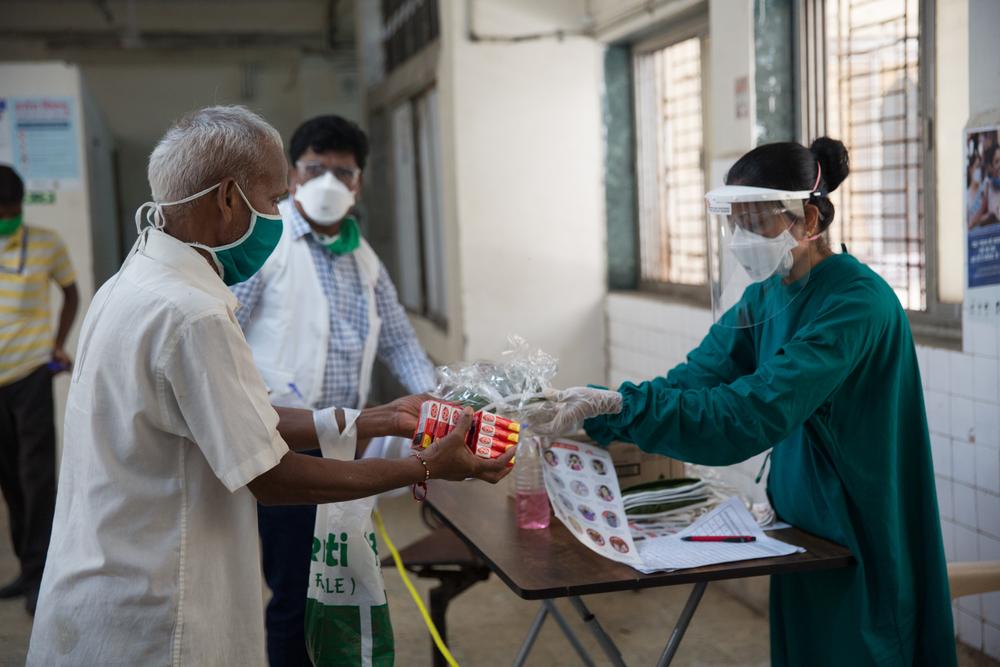
MSF nurse distributing masks and soaps in hospitals. © Abhinav Chatterjee/MSF
The emergence of new strains of COVID-19, the situation in India, Brazil and many countries suffering from the brunt of the COVID-19 emphasizes that there is a need to improve access to COVID-19 vaccines, health products and technologies. To date, many of the low-income countries in which Doctors Without Borders operates have only received 0.3 percent of global COVID-19 vaccine supply.
Dr Yuan Qiong Hu, Senior Legal Policy Advisor and Policy Coordinator of MSF Access Campaign, said, “It is time to choose lives over profits. We ask governments to support this proposal and put pressure on wealthy countries still currently blocking this waiver and standing in the way of making COVID-19 tools more easily available to everyone, everywhere.”
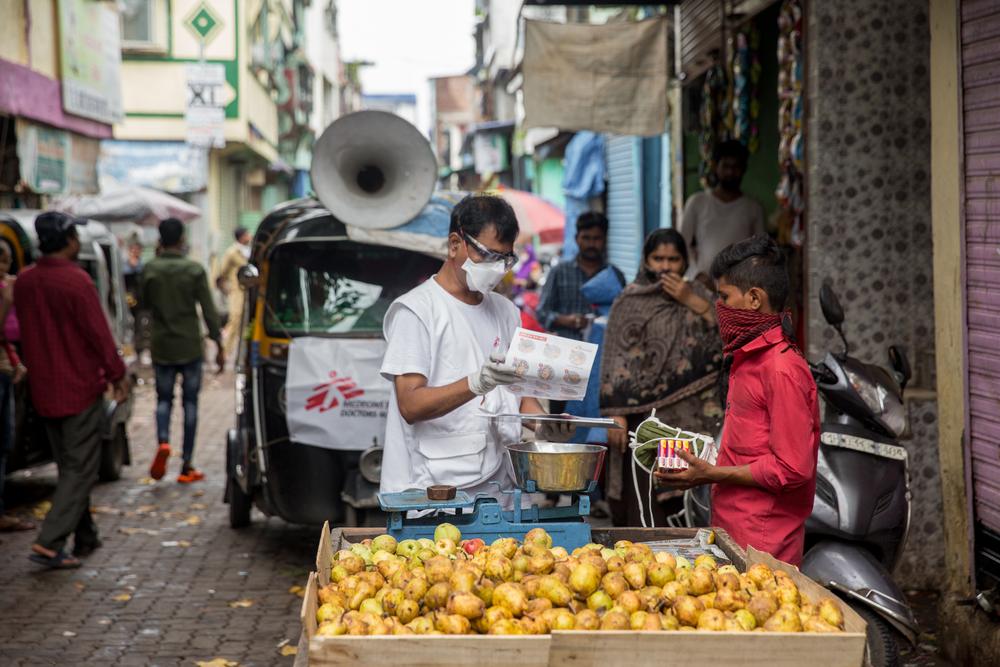
Health Promotion activities conducted by MSF in Govandi East slums in Mumbai, in order to prevent the spread of Covid-19. More than 400,000 lives in this area with a high risk of COVID-19 transmission, MSF started HP activities on June 2020 targeting this population, the main activities are mask distribution and informing on prevention measures such as washing hands and learning how to identify first symptoms. © Abhinav Chatterjee/MSF
Doctors Without Borders has been responding to the COVID-19 crisis since January 2020. In over 70 countries, our teams are caring for patients, offering health education and mental health support, providing training for vital infection prevention control measures in health facilities, donating personal protective equipment (PPE) and supporting response efforts by local authorities. Since the beginning of the pandemic, a key priority is to keep our other essential medical programs in our projects running amid this new emergency.
